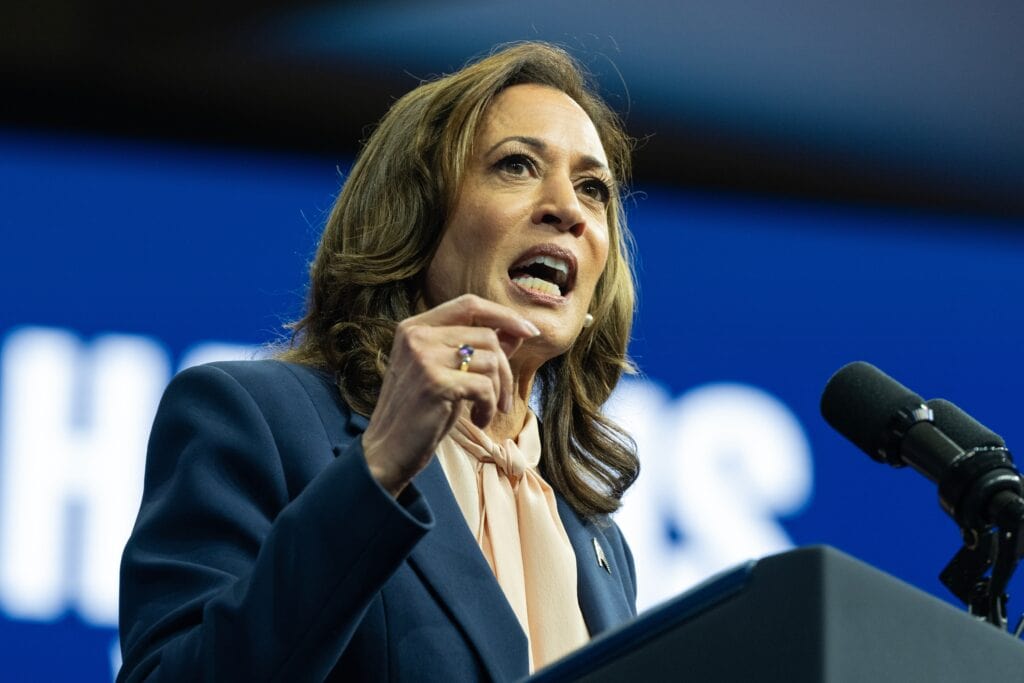Presidential Debate on Drug Addiction
In the lead-up to the 2024 election, the opioid crisis is a key issue being debated by candidates. As overdose deaths continue to climb, voters are paying close attention to how each candidate plans to handle the crisis. Donald Trump and Kamala Harris have presented two very different approaches to tackling this ongoing problem. Here’s a breakdown of their stances based on what was discussed during many debates.

Trump’s Enforcement-Focused Approach
Donald Trump has always taken a tough stance on drug-related issues, and in the recent presidential debate, he emphasized his commitment to cracking down on the opioid supply. During his previous term, Trump secured international agreements with countries like China to reduce the flow of fentanyl into the United States. He also oversaw a massive increase in drug seizures at the U.S.-Mexico border, with his administration capturing record amounts of fentanyl and other opioids.
In the ongoing presidential debates, Trump argued that the key to solving the opioid crisis lies in stopping these drugs from entering the country. He promised that if re-elected, he would increase border security, further crack down on drug trafficking, and enforce harsher penalties for those caught dealing opioids. Trump’s position is that stricter law enforcement will cut off the supply of drugs and reduce overdose deaths.

Harris’ Public Health-Centered Plan
Kamala Harris took a different approach during the presidential debate, focusing on healthcare and treatment options. Harris emphasized the need to increase access to addiction recovery services, particularly in communities that have been hardest hit by the opioid crisis. She proposed expanding funding for mental health services, making addiction treatment medications like naloxone and methadone more widely available, and removing barriers that prevent people from getting the help they need.
Harris believes that the opioid crisis cannot be solved through enforcement alone. Instead, she argued in the debate that the government should prioritize providing treatment for people struggling with addiction. Her plan also includes harm reduction strategies, such as expanding access to needle exchange programs and safe injection sites, which she says can save lives by reducing the risk of overdose.
During ongoing presidential debates, Harris criticized Trump’s approach, arguing that it focuses too much on punishment and not enough on helping people recover. She suggested that harsher penalties for drug dealers often end up hurting people who are already struggling with addiction. Instead, Harris wants to create a system where individuals with substance use disorders have greater access to medical care and support.

Key Differences Highlighted in the Presidential Debate
In past presidential debates they have highlighted a clear divide between Trump and Harris on how to address the opioid crisis. Trump’s plan is centered on enforcement, border control, and harsher penalties, while Harris’ approach focuses more on healthcare access, treatment, and harm reduction. Both candidates recognize the severity of the opioid crisis, but they propose very different solutions.
For Trump, the key is to cut off the supply of drugs by strengthening border security and imposing stricter penalties on traffickers. He argues that reducing the availability of opioids will lead to fewer addictions and deaths. Harris, on the other hand, believes that a healthcare-first approach is essential. By expanding treatment options and reducing the stigma associated with addiction, she believes more people will seek help and recover.
What’s at Stake in the 2024 Election
The 2024 election could significantly shape the future of America’s response to the opioid crisis. If Trump is re-elected, his focus will likely remain on supply control and law enforcement. His supporters believe that this approach will help prevent future opioid addictions and deaths by cracking down on illegal drugs before they enter the country.
If Harris and her policies win, the focus will likely shift towards improving access to healthcare and addiction treatment. Her supporters argue that by addressing the root causes of addiction, such as poverty and lack of access to care, the country will see a reduction in opioid-related deaths over time.

A Crucial Moment for Drug Policy
The 2024 presidential debates have brought much-needed attention to the opioid crisis, with both Trump and Harris offering contrasting solutions. Whether voters side with Trump’s law-and-order approach or Harris’ treatment-centered plan, the direction of the nation’s drug policy could change dramatically based on the election results.
As the presidential debates continues to unfold, it’s clear that the future of opioid crisis management is a key issue on the ballot. Voters will need to decide which approach they believe will best solve the epidemic and save lives.
Connect With Us Now
Reach out to us now for immediate support, or let us know the best time to contact you through our confidential callback service. Your journey to healing is just a conversation away.









